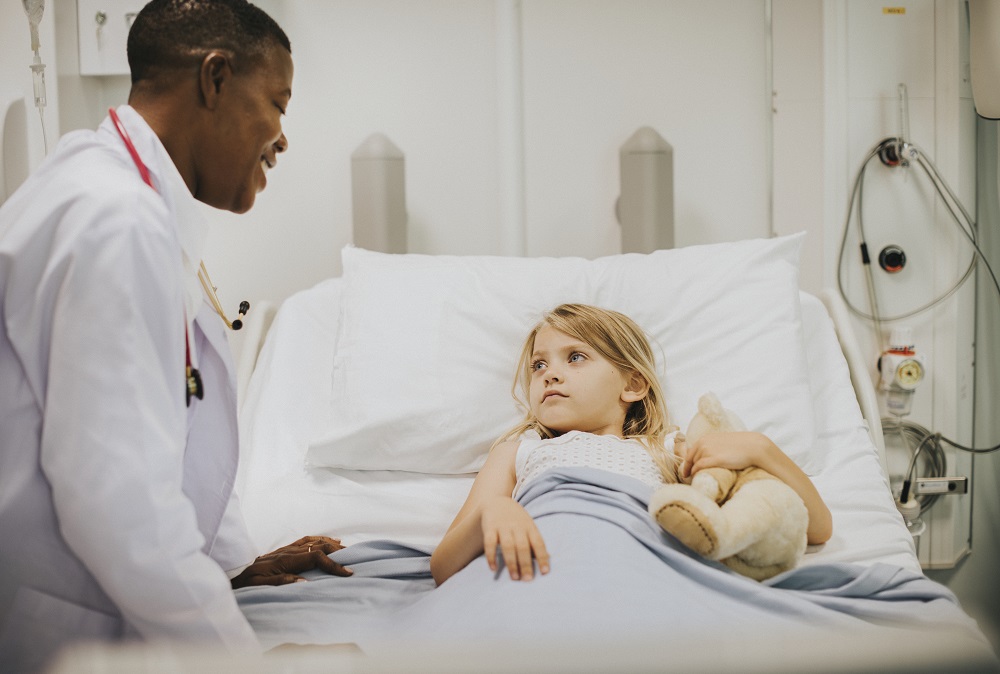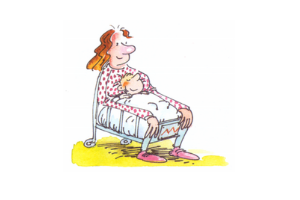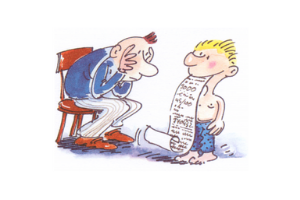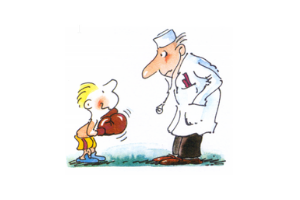
THE EACH CHARTER AND THE UN CONVENTION ON THE RIGHTS OF THE CHILD
The 10 principles of the EACH Charter relate in many respects to the rights of the child in general as stipulated in the UN Convention on the Rights of the Child (CRC), as well as to the recognition of children’s different emotional and developmental needs depending on their age.
In addition, the EACH Charter relates to the UNCRC General Comment No 15 (2013) on the child’s right to the enjoyment of the highest attainable standard of health (art. 24), and to the UNCRC General Comment No. 4 (2003) on adolescent health and development.
In particular art. 3 CRC emphasises the primacy of the child’s welfare and to implement this welfare principle requires an effective, child-centred service.
Implementing the EACH Charter means at the same time implementing in particular the following articles of the CRC:
CRC DEFINITON OF AGE
The CRC defines the age of a child to be from 0-18 years (with certain exceptions). In many European countries children are only accepted into children’s hospitals or wards up to 16 years or even less in some places.

ART. 24
CHILD’S RIGHT TO HEALTH AND HEALTH SERVICES
(1) “States Parties recognise the right of the child to the enjoyment of the highest attainable standard of health…”
See: All Articles 1 – 10 in the EACH Charter below .
ART. 3
BEST INTERESTS OF THE CHILD
(1) “In all actions concerning children … the best interests of the child shall be a primary consideration.”
(3) “States Parties shall ensure that the institutions, services and facilities responsible for the care or protection of children shall conform with the standards established by competent authorities, particularly in the areas of safety, health, in the number and suitability of their staff, as well as competent supervision.”
See: Articles 1 – 3, 6 – 8 in the EACH Charter below .
ART. 5
PARENTAL GUIDANCE AND THE CHILD’S EVOLVING CAPACITIES
“States Parties shall respect the responsibilities, rights and duties of parents or, where applicable, the members of the extended family… in a manner consistent with the evolving capacities of the child, appropriate direction and guidance in the exercise by the child of the rights recognised in the present Convention.”
See: Articles 4 and 5 in the EACH Charter below .
ART. 9
SEPARATION FROM PARENTS
(1) “States Parties shall ensure that a child shall not be separated from his or her parents against their will.”
See: Articles 2 and 3 in the EACH Charter below .
ART. 12
RESPECT FOR THE VIEWS OF THE CHILD
(1) “States Parties shall assure to the child who is capable of forming his or her own views the right to express those views freely in all matters affecting the child, the views of the child being given due weight in accordance with the age and maturity of the child.”
Staff caring for children in hospital should be able and willing to listen to them, to treat them with respect, to successfully communicate with them and in matters of dissent be able and willing to reach an amicable agreement.
See: Articles 4 and 5 in the EACH Charter below .
ART. 16
CHILD’S RIGHT TO PRIVACY
Applies to all children and in all situation, including within the family, alternative care, and all institutions, facilities and services.
See: Articles 10 in the EACH Charter below .
ART. 17
CHILD’S ACCESS TO APPROPRIATE INFORMATION
State Parties have to ensure that the child has access to information and material from diverse sources – especially those aimed at promoting well-being and physical and mental health.
See: Articles 5 in the EACH Charter below .
ART. 18
PARENTS’ JOINT RESPONSIBILITIES
1) ”States Parties shall use their best efforts to ensure recognition of the principle that both parents have common responsibilities for the upbringing and development of the child. Parents …. have the primary responsibility for the upbringing and development of the child. …”
(2) “For the purpose of guaranteeing and promoting the rights set forth in the present Convention, States Parties shall render appropriate assistance to parents and legal guardians …. and shall ensure the development of institutions, facilities and services for the care of children.”
See: Articles 2, 3 and 4 in the EACH Charter below .
ART. 19
CHILD’S RIGHT TO PROTECTION FROM ALL FORMS OF VIOLENCE
Requires protection of the child from all “forms of physical or mental violence” while in the care of parents or others.
See: Articles 8, 9 and 10 in the EACH Charter below .
ART. 23.3 AND 23.4
RIGHT OF DISABLED CHILDREN
(3) “Recognising the special needs of a disabled child …to ensure that the disabled child has effective access to and receives education, training, health care services … .”
(4) “States Parties shall promote … the exchange of appropriate information in the field of preventive health care and of medical, psychological and functional treatment of disabled children … .”
The principles of the EACH Charter apply to children with all kinds of illnesses or disabilities.
ART. 25
CHILD’S RIGHT TO PERIODIC REVIEW OF TREATMENT
Requires periodic review of the treatment and circumstances of children who have been placed by the authorities for the purposes of care, protection or treatment of their health.
See: Articles 8 in the EACH Charter below .
ART. 28
CHILD’S RIGHT TO EDUCATION
The right to education is not limited to instructions delivered within schools. Possibilities to continue education during a hospital stay must, therefore, be provided.
See: Articles 7 in the EACH Charter below .
ART. 29.1 (A) AND (C)
THE AIM OF EDUCATION
(1) “States Parties agree that the education of the child shall be directed to:
(a) “The development of the child’s personality, talents and mental and physical abilities to their fullest potential;…”
(c) “The development of respect for the child’s parents, his or her own cultural identity, language and values, for the national values of the country in which the child is living, the country from which he or she may originate, and for civilizations different from his or her own;….”
See: Articles 7 and 10 in the EACH Charter below .
ART. 30
CHILDREN OF MINORITIES OR OF INDIGENOUS PEOPLE
Protects the rights of children to enjoy their own culture, practise their religion and use their language.
See: Articles 10 in the EACH Charter below .
ART. 31
CHILD’S RIGHT TO LEISURE, RECREATION AND CULTURE
Especially during a stay in hospital, play and creative activities are an important factor in helping the child to cope with its illness.
See: Articles 7 in the EACH Charter below .
ARTICLE 1
Children shall be admitted to hospital only if the care they require cannot be equally well provided at home or on a day basis.
ARTICLE 2
Children in hospital shall have the right to have their parents or parent substitute with them at all times.
ARTICLE 3
(3.1) Accommodation should be offered to all parents and they should be helped and encouraged to stay. (3.2) Parents should not need to incur additional costs or suffer loss of income. (3.3) In order to share in the care of their child, parents should be kept informed about ward routine and their active participation encouraged.
ARTICLE 4
(4.1) Children and parents shall have the right to be informed in a manner appropriate to age and understanding. (4.2) Steps should be taken to mitigate physical and emotional stress.
ARTICLE 5
(5.1) Children and parents have the right to informed participation in all decisions involving their health care. (5.2) Every child shall be protected from unnecessary medical treatment and investigation.
ARTICLE 6
(6.1) Children shall be cared for together with children who have the same developmental needs and shall not be admitted to adult wards. (6.2) There should be no age restrictions for visitors to children in hospital.
ARTICLE 7
Children shall have full opportunity for play, recreation and education suited to their age and condition and shall be in an environment designed, furnished, staffed and equipped to meet their needs.
ARTICLE 8
Children shall be cared for by staff whose training and skills enable them to respond to the physical, emotional and developmental needs of children and families.
ARTICLE 10
Children shall be treated with tact and understanding and their privacy shall be respected at all times.










